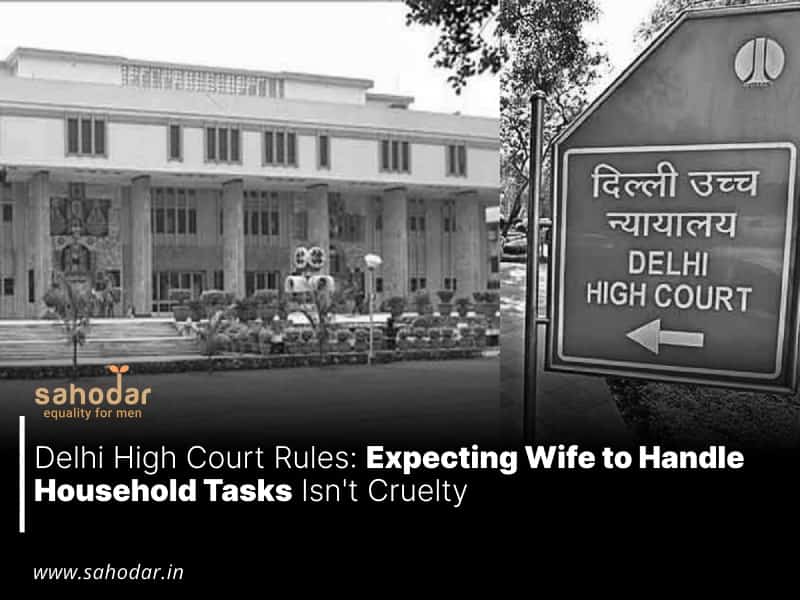The Delhi High Court has granted divorce to a husband, citing cruelty by his wife. The wife was accused of neglecting household chores and living separately, often residing with her parents despite the husband’s efforts to provide separate accommodation. This temporary separation caused insecurity and deprived the husband of his role as a father. Additionally, both the wife and a suspected member of a land mafia were arrested for alleged money laundering. In a separate incident, a woman was stabbed by her ex-husband in Vile Parle West and hospitalized.
The High Court’s decision reflects its view that expecting a wife to manage household tasks cannot be labeled as cruelty. A division bench comprising Justices Suresh Kumar Kait and Neena Bansal Krishna addressed a man’s appeal challenging a family court’s rejection of his plea for marriage dissolution on grounds of cruelty by his wife.
The bench emphasized that marriage entails a shared responsibility for future life between both parties. It reiterated precedents that indicate a married woman’s involvement in household work as an expression of love and affection for her family, rather than being akin to the duties of a maid servant.
Granting divorce to the man under Section 13(1)(ia) of the Hindu Marriage Act 1955, the High Court overturned the previous order. The couple, married in 2007 and blessed with a son in 2008, had a tumultuous relationship from the outset. The husband alleged his wife’s quarrelsome behavior, reluctance to perform household chores, and unwillingness to shoulder responsibilities.
In defense, the wife claimed she fulfilled her household duties but was met with dissatisfaction from her husband and in-laws. Despite the husband’s efforts to accommodate her separately, she mostly resided with her parents, which the court deemed as disregarding matrimonial obligations and depriving the husband of his paternal role.
The court noted the insecurity arising from this temporary separation and emphasized the wife’s lack of intention to live in a joint family. Her choice to stay with her parents not only ignored matrimonial responsibilities but also kept the husband away from his son, the High Court concluded.

